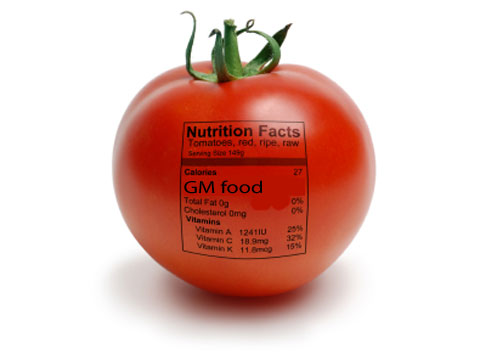On Friday, March 8, Whole Foods Market became the first retailer in the US to require labeling of all genetically modified foods.
They are no longer just about being a destination where consumers can purchase a wide variety of WHOLE foods but they are about ensuring consumers have access to the WHOLE story about what’s in the foods they buy.
I project this will go down in history as one of the most successful and important brand initiatives of 2013, and perhaps of this century. Whole Food’s choice to zig against the zag of its very own industry, putting an internal policy in place to help protect consumers, will not only cement the trust and loyalty of its customer base but will win over a lion’s share of new customers hungry to stand alongside them in this fight for consumer protection and public health (even if they have to pay more to do so). This will inevitably cause a ripple effect that will impact all grocers and the entire food industry, and will surely trickle up to Washington policymakers. And we’ll get to watch this delicious scene play out over these next few years as Whole Foods puts its stand in force.
Whole Foods has given food companies 5 years to get their act together, or to be evicted from their hard-won shelf space. Even in the face of consumer criticism about one of their own private label products. Whole Food’s 365 cereal came under scrutiny as it contained genetically modified corn (as do most cereals). But before the press had a field day with this, they quickly re-formulated this cereal to remove the GMO corn. Ok, so no company is perfect. But how quickly the consumer is willing to forgive and forget when they see a company that has the big picture in mind. Big Food, Big Pharma, and not even Big Government will be able to hold on to their justification much longer that it’s ok to feed Americans genetically modified ingredients without them knowing about it.
88% of corn and 94% of soy crops were genetically modified in the US in 2011. Soy and soy derivatives are in most bread, crackers, chips, cookies, candy, canned tuna fish, processed sauces, salad dressings, condiments, and this is only the tip of the soyberg. Many restaurants use soybean oil to cook with because it’s inexpensive. Soy lecithin is used in many vitamins and supplements, and it’s even in most chocolate. Holy Godiva! If you look on the back of many Trader Joe labels (and labels across the board), you’ll often see a note that says “Made in a facility that processes Soy, etc.”. So there’s almost no escape from soy. Or the negative health effects soy produces on human physiology, apart from the genetically modified variety. Of course, we all know how pervasive high fructose corn syrup is in our food and beverage supply, especially with all the negative press it’s gotten in recent years that it’s one of the leading contributors to diabetes and obesity in America. Thanks for your help on this one Mayor Bloomberg and others who have waged effective campaigns to get the word out on this issue. But have we yet grappled with the concept that nearly all this corn syrup is coming from GMO corn?
No wonder PepsiCo and Coca-Cola spent millions last year lobbying against the hard-fought GMO food labeling ballot in California. What’s scarier is that they won (with the financial help of the biotech industry). They actually succeeded at convincing voters that mandatory labeling of GMO foods would spread unfounded fear among Americans, would raise food prices, and would have a negative impact on farmers. To help seal the deal on this argument and put this ballot to rest (at least until now), our own Food and Drug Administration, the World Health Organization, and the American Medical Association piped in and told Americans that genetically modified foods aren’t proven to have a negative effect, when in fact there is plenty of evidence that points to the opposite perhaps being true. But the real truth is, the amount of research done in the area of GMO food testing on human beings (or even lab rats) is insufficient to make an argument for GMO labeling stick in the face of multimillion-dollar smear campaigns conducted by giant corporations. So even though we don’t have the research or the voters or the policies to force change at this time, we’ve now got a rebel game-changer in Whole Foods.
So kudos Whole Foods for living up to your brand name in a WHOLE new and powerful way that makes a difference for the WHOLE of America.
Source for photo:



